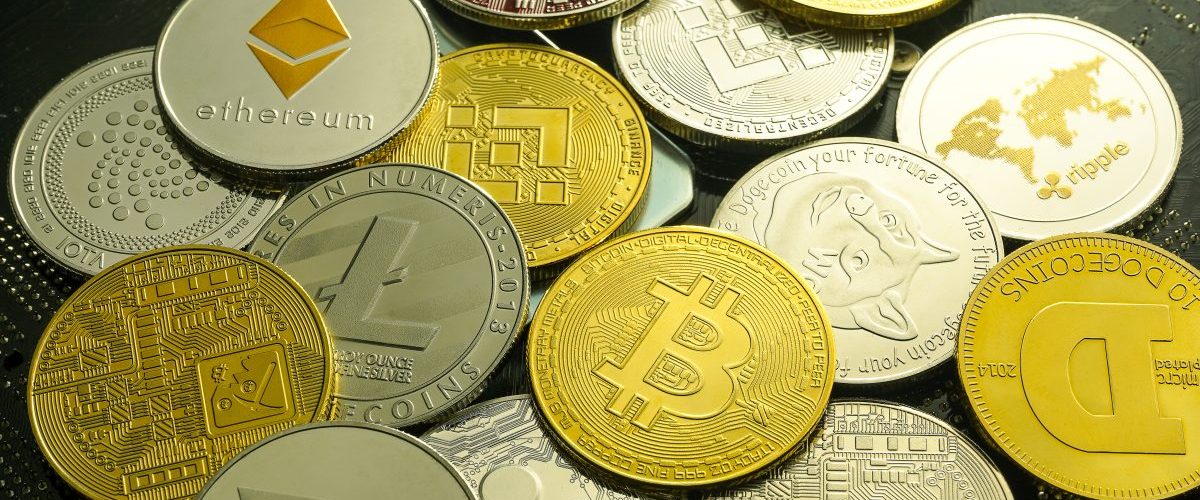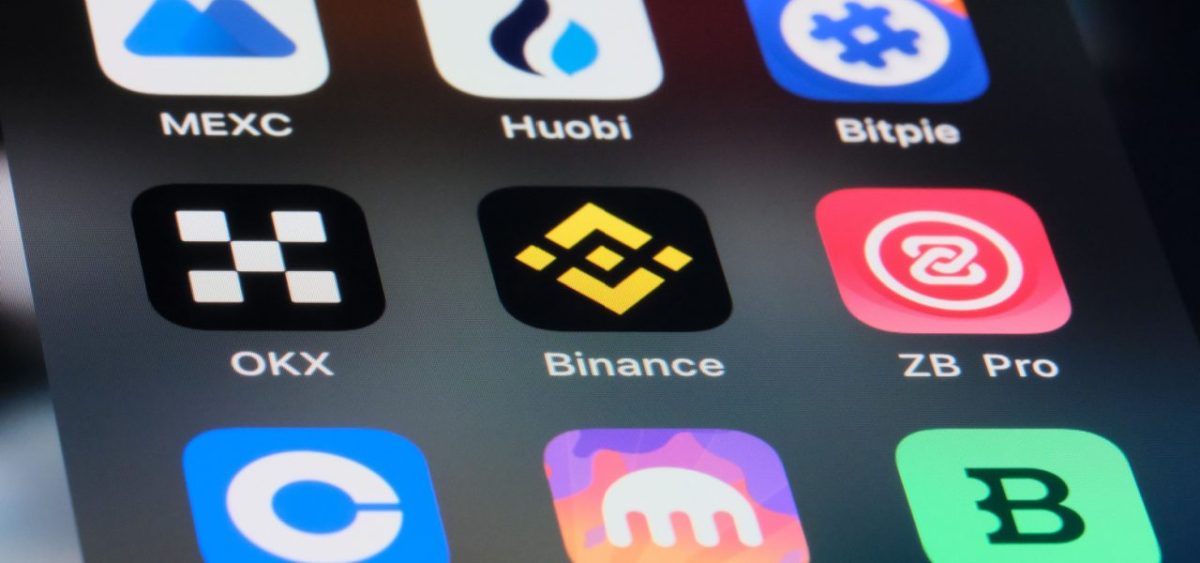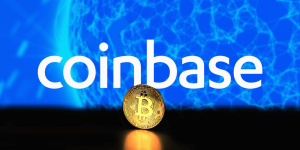KuCoin and Binance launched at similar times during the 2017 Bitcoin bull market rally. They were both pioneers in introducing an exchange-based crypto token that integrates within the platform and offers holders perks and trading fee discounts.
Both exchanges are top-tier platforms known for their sleek user interfaces, stable trading environments, and adequate liquidity across crypto market pairs.
In this comparative study, we will take a detailed look at KuCoin vs Binance, examining their crypto exchange features, such as security measures, trading fees, and cryptocurrency market pairs.

KuCoin – 1 in 4 crypto holders use this trading platform
KuCoin is a cryptocurrency exchange founded in 2017 and headquartered in Seychelles. The exchange allows users to buy, sell, and trade a wide range of digital currencies, with over 700 listed.
This trading platform is available worldwide in over 200 countries and has over 30 million active users. According to CoinMarketCap, KuCoin is the 10th largest crypto exchange by trading volume.
Binance – The world’s largest exchange by daily trading volumes
Binance is the market’s most popular cryptocurrency trading platform, offering access to over 350 cryptocurrencies. According to CoinMarketCap, it is the number one exchange by trading volume, facilitating over $15 billion in crypto asset trades per 24-hour period.
The platform was founded in 2017 by blockchain innovator and web3 developer Chengpeng Zhao, commonly known as CZ. Binance launched in a traditional ICO presale, selling its native $BNB tokens to early supporters. Within six months of launch, it became the largest crypto exchange in the world.
KuCoin vs Binance in 2024 – Key facts and figures
| Platform Features | KuCoin | Binance |
| Trading pair markets | 1300+ | 1600+ |
| Supported cryptocurrencies | 750+ | 350+ or 150+ on Binance.US |
| Supported fiat currencies | 48 | 46 |
| Margin and futures trading | Yes | Yes |
| Native token | KCS | BNB |
| KYC required | Yes | Yes |
| Trading in the US | No | via Binance.US |
| Accepted payment methods | Credit/debit card, SEPA, ACH Bank Transfer, ApplePay, peer-2-peer, and third-party fiat on-ramp providers | Credit/debit card, SEPA, ACH Bank Transfer, ApplePay, peer-2-peer, and third-party fiat on-ramp providers |
Parallel comparison of KuCoin vs Binance
Read on for an overview of both crypto exchange’s platform features, regulatory licenses, trading fees, and security.
KuCoin vs Binance: Regulation
When accessing crypto exchanges and trading digital assets, it is vital to ensure that your country of residence allows trading specific cryptos and platforms.
Where is KuCoin not available or banned?
Recently, several countries have banned KuCoin from operating and providing crypto trading services. They are as follows:
- Restricted access: Canada, Cuba, Crimea, European Union, Iran, North Korea, Syria, UK, USA
- Banned: Belgium, China (Mainland), Japan, Myanmar, Netherlands, and Sudan
- Not available: Afghanistan, Algeria, Argentina, Bolivia, Egypt, Ethiopia, Fiji, Iraq, Libya, Papua New Guinea, Somalia, and Venezuela.
Tip: Although some jurisdictions are prohibited, KuCoin’s services may still be accessible. However, they may require you to provide KYC (know your customer) and potentially offer services with limited features. This is because it is a Seychelles-headquartered business, making it difficult for regulators to enforce compliance measures.
In which countries is Binance supported?
Due to Binance’s obtaining specific financial licenses and regulatory oversight, the exchange can operate in all continents. However, only particular countries are included. This is likely due to individual country laws, standards, and regulations.
Binance provides crypto trading services in the following countries and regions:
- Africa: Only Nigeria and South Africa are supported
- America: Argentina, Brazil, Chile, Colombia, Mexico, Peru
- Asia & Pacific: Afghanistan, Australia, Cambodia, India, Indonesia, Japan, Kazakhstan, Mongolia, Myanmar, New Zealand, Pakistan, Philippines, Taiwan, Vietnam
- Europe: Bulgaria, Czech Republic, Europe, France, Greece, Hungary, Italy, Latvia, Poland, Portugal, Romania, Russia, Slovakia, Slovenia, Spain, Switzerland, Turkey, Ukraine.
- Middle East: Egypt, Israel, Saudi Arabia, United Arab Emirates
Note: At the end of 2023, the US Department of Justice charged the founder and ex-CEO of Binance, CZ, with violations of the Bank Secrecy Act (BSA) and failing to register as a money-transmitting business. CZ cooperated and agreed to pay $4.3 billion in penalties. Binance is also subject to stringent oversight by an independent monitor, enhancing its compliance measures.
Comparison of financial licenses
Below, we will examine the different financial licenses and regulatory permits Binance and KuCoin hold in regions worldwide.
| Operating Region | KuCoin | Binance |
| United States | Unlicensed and restricted | FinCEN-registered Money Services Business |
| Europe | Operating in a grey area | Registered DASP in France, Italy, and Spain |
| Middle East | No license is needed to operate | Dubai – VARA Specialist License, Bahrain – CBB License |
| Other | Unknown | FCA (UK), ASC (Canada), Registered with AUSTRAC (Australia) |
KuCoin vs Binance: Trading features
When choosing a crypto exchange, traders tend to look for feature-rich platforms that provide various Web3 tools and services. These include charting tools, indicators, educational resources, market insights, non-custodial wallets, copy trading, and trading bots.
Find below a summarized table of the core trading features offered by each platform.
| Features | KuCoin | Binance |
| Order types | Limit, market, stop-limit, stop-market, one-cancels-the-other, automated trading. | Limit, market, stop-limit, stop-market, one-cancels-the-other. |
| Trading View compatible | Yes | Yes |
| Margin trading | Cross margin; 5x leverage | Isolated margin; 10x leverage | Cross and Isolated; variable 3-10x leverage |
| Futures trading | Futures Lite & Classic | Leveraged tokens | Futures Brawl (gamified) | Quarterly (COIN-M) | Perpetual (USDS-M) | Leveraged tokens | Binance Options |
| Trading bot strategies | Spot grid, Infinity grid, Dollar-cost averaging, Smart rebalance, Futures Grid bots | Grid bot for futures trading only |
| (P2P) Peer-to-peer trading | Buy $USDT, $BTC, $ETH, $KCS, and $USDC | Binance Pay – P2P payment feature for Binance.US users |
| Staking | Yes | Yes |
| Educational resources | KuCoin Learn | Binance Academy |
| Market insights tools | KuCoin Blog | Binance Square |
| Market research | KuCoin Labs | Binance Research |
KuCoin vs Binance: Fees
The average crypto trader may not worry about fees on individual platforms. However, experienced traders with a higher-volume trading portfolio will want to minimize the amount paid in trading fees, withdrawal fees, and fiat on/off-ramping.
Fees, particularly when withdrawing crypto tokens, can vary depending on each token’s native blockchain. This is due to different blockchains’ capabilities regarding processing times, transaction throughput, and transaction costs.
Below is a comparative rundown of the fundamental trading and other fees on both Binance and KuCoin.
| Type of Fees | KuCoin | Binance |
| Spot fees (maker/taker) | 0.1% / 0.1% (pay in $KCS discount) | 0.1% / 0,1% (pay in $BNB discount) |
| Futures fees | 0.02% / 0.06% | 0.02% / 0.04% |
| Deposit fees | 0% – Crypto deposits3.80% – Fiat with Bank Card (Visa/MC) | 0% – Crypto depositsVariable by bank – Fiat with Bank Card (Visa/MC) |
| Withdrawal fees | Depending on the blockchain network | Typically, between $1 – $15 for crypto and fiat |
| Debit/Credit CardInstant Buy Fees | 2% | 3.99% |
KuCoin vs Binance: Safety and security measures
A well-known rule of thumb in crypto is “not your keys; not your crypto”. Storing funds on any centralized platform poses its own risks. We highly recommend never storing all of your crypto in one place. Long-term crypto portfolio token holds are best stored on a cold storage device such as Ledger or Trezor.
Nevertheless, KuCoin and Binance provide robust security measures to protect crypto traders and their data, putting user asset safety first.
KuCoin – Industry-leading technology to protect user assets and data
Here are some of the security measures that KuCoin implements:
- Secure Asset Storage: Assets are stored on a mixture of independent cold, warm, and hot wallets and use multi-sig technology
- Multi-layer Account Security: User protection with two-factor authentication (2FA) and email verification for account activities and withdrawals.
- Robust Development: Rigorous code audits, security architecture reviews, and penetration stress testing.
- Proof of Reserves: KuCoin regularly publishes live real-time breakdowns of its crypto asset reserve ratios
- Security Tips: KuCoin has a dedicated Security Tips section covering crypto scams, account security, and crypto wallets.
- Bug Bounty Program: A $1 million $USDT crypto bug bounty community fund available for bug and security feedback.
Binance – State-of-the-art security measure committed to user protection
Here are some of the security measures that Binance implements:
- Secure Asset Storage: Most user funds and assets are stored safely in offline cold storage.
- Real-time Monitoring: A risk management system analyzes every withdrawal attempt, password reset, 2FA reset, and change of email address. Unusual activity triggers suspended withdrawals for a minimum of 24-48 hours.
- Access Control & Multi-layer Security: Wallet address and IP whitelisting, 2FA, SMS, and email verification for account activities and withdrawals.
- Organizational Security: Advanced security measures for wallet and personnel infrastructure, including multi-signature and threshold signature schemes (TSS).
- Proof of Reserves: Binance regularly publishes live, real-time breakdowns of its fully backed crypto asset proof of reserves, which are at a minimum 1:1 ratio.
- Advanced Data Encryption: User data and personal information stored, including Know-Your-Customer (KYC) information, is encrypted. Data in transit is also secured via end-to-end encryption.
KuCoin vs Binance: Customer support
Both platforms provide their clients with customer support features and have similar support mechanisms, which are outlined below.
| Type of Support | Details |
| Self-service | Account verification and resetting security, KYC issues, crypto deposit/withdrawal, P2P buying/selling crypto. |
| Live support bot agent | 24/7 live robot support agent providing live chat assistance and guidance |
| Submit ticket request | For issues that can not be resolved via the above two methods, submitting a ticket will ensure cases are directed to the relevant team. |
What are the benefits and drawbacks of KuCoin?
Pros
- New crypto listings: KuCoin is well-known as a starting ground for many new cryptos that aim to be tradable on centralized exchanges. Newly listed coins on centralized exchanges commonly attract more buyers, thus increasing their price and market capitalization. You can view our catalog of new and potential crypto listings on major crypto exchanges like Coinbase, Binance, Uniswap, MEXC, ByBit, and OKX.
- Range of crypto tokens: KuCoin’s crypto exchange is noteworthy for the wide range of crypto tokens listed on the platform. The platform has more than 700 cryptos listed on it, with over 1,300 different trading pairs.
- Reasonable fees: KuCoin has a reasonable fee structure, charging a flat 0.1% maker/taker fee. Paying in $KCS will discount trading fees by 20%. Similarly, withdrawal fees are seemingly reasonable, depending on the crypto token. Crypto assets native to cost-efficient blockchains such as Solana and BNB Smart Chain are fairly charged.
Cons
- Lack of regulatory compliance: Unlike Binance, which has undergone major court hearings and is continuously on the frontline for financial regulators, KuCoin has not been pursued in this way. This may be due to the inability to locate its operational offices properly or its Seychelles headquarters, which allows the exchange to operate in a grey area in some regions.
- Purposeful liquidations: Although this is questionable, many crypto traders online have expressed their bad experiences with KuCoin Futures. The platform has, at times, questionably liquidated positions or halted trading, causing a sell-off and liquidating any open leveraged/margin positions.
- Not your keys: With KuCoin’s shadow operational style, leaving cryptocurrency holdings on this exchange is poised to be a risky endeavor. If the exchange closes down, deletes its websites, and disappears from one day to the next, nobody will have any leads or supportive grounds to get their funds back. Countries’ financial bodies have required exchanges to include regional risk disclaimers and provide dutiful warnings.
What are the benefits and drawbacks of Binance?
Pros
- Unmatched liquidity: The platform has over 90 million customers worldwide and frequently surpasses $15 billion daily trading volume on its exchange.
- Financial reserves: Binance boasts over $130 billion in crypto asset financial reserves spread over various cryptos and stablecoins. It also allocates a reasonable sum to its native $BNB and $BUSD, while allocating other reserves in $BTC, $ETH, and $USDT.
- Real-time price and settlement: Binance is a fast and reliable trading platform. Over the years, its trading interface has become more powerful and feature-rich. The exchange is noteworthy for its super-fast execution and settlement of trades while also being reliable in processing transactions in a timely manner, both inbound and outbound.
Cons
- Supported region: Over the years, Binance has undergone several hurdles in the cryptocurrency sector. Binance had headquarters in Malta, among other regions, that closed down. Explore Binance’s list of supported regions. US residents can access Binance exchange via Binance.US.
- Limited crypto assets: Although Binance’s primary exchange platform supports over 350+ cryptocurrencies, Binance.US must evaluate and offer crypto coins and trading pairs in accordance with its Digital Asset Risk Assessment Framework. Explore the 150+ supported cryptos on Binance.US.
- Ongoing regulatory issues: Binance operates in quite an opaque manner, having remote operations globally. Due to it being the world’s largest exchange, financial regulators have questioned Binance’s practices, while many countries have banned the exchange from operating.
KuCoin vs Binance in 2024 - Our verdict
Both Binance and KuCoin have their respective plus points, differing in crypto trading features, user experience, security, and regulatory compliance.
While both platforms were launched at a similar time in the earlier days of blockchain technology, Binance is the number one leading exchange in trading volume and financial reserves, while KuCoin stands at number 10. However, that does not necessarily mean that KuCoin is untrustworthy or not a good platform.
Our analysts forecast that if KuCoin becomes more compliant with regional regulatory bodies, it could quickly become one of the top five crypto exchanges.
Methodology
Our research process includes consultation with several in-house cryptocurrency and investment experts with more than a decade of combined experience. Our team created a shortlist of criteria for us to research, such as exchange features, trading fees, regulatory licenses, and individual pros and cons. This ensures multiple aspects are considered when determining which platform is the best crypto exchange out of KuCoin or Binance in 2024.
FAQs
Is KuCoin safer than Binance?
Nevertheless, storing crypto on centralized exchanges means that coins are not physically in your custody and are stored on the platform's hot wallets.
Is my money safe in KuCoin?
However, exchanges have been known to cover and fully reimburse customer losses from hacks to their platform.
What makes Binance a better trading platform?
Is KuCoin ok for the US?
References
- https://coinmarketcap.com/exchanges/kucoin/
- https://coinmarketcap.com/exchanges/binance/
- https://www.binance.com/en-GB/country-region-selector
- https://support.binance.us/hc/en-us/articles/360049417674-List-of-Supported-Assets
- https://www.reddit.com/r/kucoin/comments/upqjvu/kucoin_instantly_liquidating_my_futures_scamming/
- https://www.binance.com/en/blog/from-our-ceo/from-burgers-to-bitcoin-billions-how-cz-built-a-leading-crypto-exchange-in-just-180-days-421499824684901276
- https://www.justice.gov/criminal/case/united-states-v-changpeng-zhao
- https://www.nytimes.com/2022/10/07/business/binance-hack.html
- https://cryptorank.io/news/feed/8f48c-what-countries-is-kucoin-available-in
- https://www.linkedin.com/pulse/kucoin-restricted-countries-fintechdigi-5tbkc










